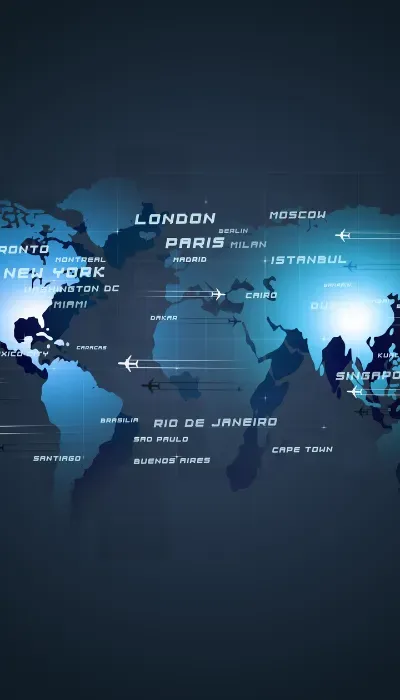In the dynamic world of aviation, the demand for skilled professionals varies across operational roles such as pilots, cabin crew, and maintenance personnel. We delve into the current state of the market for each discipline and uncover key trends shaping career trajectories.
Maintenance personnel
As airlines have grown (and continue to grow) post-COVID the demand for maintenance personnel has risen. Whilst many airlines have wanted to expand their business and the numbers in their maintenance teams, many have been faced with a reality where they can only replace the people they are losing rather than seeing any real growth in their teams.
A re-focus on retention
There has been a notable shift from not just attracting new maintenance talent but a refocus on retaining talent. Retaining talent has created a marketplace where counteroffers are the norm and in the last 12 months, we have seen the most aggressive ones yet. The renewed focus on retention has meant that employers whilst once may have been confident in rehiring, are now doing everything they can to keep hold of their people. These aggressive counteroffers are in some cases creating salary disparities within the same or similar roles.
Concerns for job security
In our MRO & Engineering Survey 2023, the results have produced findings that anyone hiring maintenance personnel should be aware of. Over 50% of the respondents raised concerns over their job security. Citing the cost of living crisis, lack of feedback, reviews or progressions plans and new leadership as the top contributors. This has in turn impacted the likelihood of job seeking with four-fifths of this group planning to change jobs in the next 12 months.
Headhunting levels grow
Overall, over 60% of maintenance personnel said they plan to change jobs over the next year with a further 2% planning to retire. Salaries and benefits topped the job-seeking motivations. In addition, nearly two-thirds of the respondents had been headhunted in the last six months, bringing attention to how active the market is right now.
Not only are we in a period where the market is dominantly candidate-led, but there has also been a notable uptick in confidence in maintenance personnel. Whether it is asking for pay rises, improved benefits, and career progression with their current employers or demanding more from recruitment processes and job offers, candidates are confident in their worth and are not shy in asking for what they want. This is putting pressure on employers to take care of their current employees but also to develop their succession planning tactics and attraction methods, just in case.
Skill shortage concerns for B1 and B2 Engineers
Overall, there is a shortage of maintenance personnel, but in particular B1/B2 Engineers. This is not a new trend, but a skill shortage that is getting worse and more urgent. As flight operations have returned and airlines and aviation businesses have wanted to expand, they have been left with the worst shortage of these skilled individuals than has ever been seen before.
We are at the point where it is mission-critical for so many airlines and aviation businesses to find B1 and B2 Engineers. It feels like we need to get back to the grassroots and make this profession highly appealing to young people again. We need to ensure that this does not get worse in the future as the sector will not cope.
Whilst the future is starting to look bleak, some of the findings from our MRO & Engineering Survey 2023 may bring some positivity and ideas to what can be done. 78% of the respondents said they felt optimistic about their future career prospects. When people feel optimistic about their future career, prospects, it can mean they think they can learn new skills, take on more responsibility and get help to grow professionally. These are all fantastic things that employers and the sector can promote to new talent. If too many MRO and Engineering professionals don’t feel optimistic, it could impact the reputation of the profession and promote feelings of boredom or stagnation that could turn some people off and look to other career opportunities.
We also found that 88% of the respondents would repeat their careers. This portrays a profession that is full of advocates. This could be used as an opportunity to use these advocates to promote their careers and encourage young people into the profession.
Loyalty is attractive
A trait that many airlines and aviation businesses are now looking for in their teams is loyalty. This has become more prevalent due to skill shortages and the renewed focus on retention. Maintenance personnel who stay loyal to their employer for longer periods help to promote safety, quality, trust, reliability, business cohesion, compliance, and confidentiality and enhance the reputation of airlines and aviation businesses. By demonstrating loyalty, maintenance personnel play a crucial role in upholding the highest standards of aircraft maintenance and ensuring the success of the business. On the other side, it also helps airlines and aviation businesses grow their teams and avoid the often time-consuming and expensive route of talent attraction.
Pilots
A slow comeback
Pilot recruitment has been slower to make a comeback than other job disciplines. We have just started to see an uptick in airlines seeking our help with pilot recruitment, but this has been dominated by roles that are harder to fill in niche skill short subsets.
Airlines have been in a position where they were still able to rely on holding pools and the unwavering direct applications from pilots. We foresee that this period will be drawing to a close and more airlines will need recruitment help moving towards the end of the year.
Pilot employment rises year on year
In The Pilot Survey 2023 which we conducted in partnership with FlightGlobal, we had already seen pilot employment increase from 43% in 2021 up to 77% at the start of 2023. Seven months on we are confident that pilot employment has further increased. However, with over 50% of pilots saying they had had to change the type of flying they did, we consider that the employment market will become more mobile quickly. Whilst many pilots were once happy to simply have a job, we foresee that more pilots will be confident and ready to job seek once again. Our survey highlights growth in job seeking from 44% of pilots back in 2020 up to 63% at the start of this year.
Decrease in planned retirement age
Retirement has for years had an impact on pilot recruitment and employment. In our survey, whilst the youngest and two oldest age groups had the most pilots planning to fly to retirement age, the numbers decreased when looking at those aged between 25 and 44 years old. If pilots in this age group retire earlier than expected, recruitment teams may need to focus more on succession planning and recruitment to fill these positions. This highlights the importance of considering the potential impact of early retirement on pilot recruitment and planning accordingly.
The future of the pilot profession is dependent on enticing new people to the sector, particularly young people. After a period where it has been difficult to train to be a pilot, the market is under pressure to fill the future skill pool.
Advocacy for the pilot profession falls
The advocacy for a career as a pilot has notably fallen over the last few years. In 2020, 71% of pilots said they would repeat their career, yet in 2023 this fell to 62%. We have to question why we are seeing these decreases. Is it still the memories of the COVID-19 pandemic or is it more prevalent issues like pay and benefits? Whatever the reason, we hope that we see an uptick in these sentiments soon. To make professions attractive, you need ambassadors to promote them, and experienced pilots are the perfect people to do this.
We wouldn’t say there is an overall pilot shortage, but there are some niche areas that have developed. Due to fewer pilots holding these type ratings, we have seen an uptick in demand for pilots for aircraft including the Challenger, Gulfstream, Global Vision and Rotary - AW109. On top of that, there is a high demand for captains for A320 and B737 aircraft, which is simply down to the number of airlines that have these in their fleet.
Relocation has become less attractive
Brexit has made an impact on the market and certainly in the UK it has decreased skill pools. We have also found that some pilots are less inclined to want to relocate than they were before the pandemic. Filling pilot roles in the Middle East and Africa has been particularly tricky post-COVID.
Cabin Crew
This is one of the most simple markets at present. Airlines have continued to see applications from entry-level candidates and have been able to fill their positions with a mixture of new and experienced cabin crew. The role of cabin crew appears to not have lost any of its appeal.
Demand for experienced cabin crew rises for the private and charter sectors
We are seeing a demand for recruitment services from the private and charter sectors. Private and charter businesses are looking for experienced cabin crew and do not want to spend time working through applications from entry-level applicants. They know they need the top cabin crew talent to facilitate their services for their customers.
Final thoughts
In the dynamic landscape of aviation recruitment, success lies in understanding the employment and recruitment marketplace across key roles such as maintenance personnel, pilots and cabin crew. Keep up to date with the latest trends by following GOOSE Recruitment.
GOOSE loves to talk to Aviation Professionals from across the world
Follow GOOSE Recruitment on LinkedIn, Facebook and (X) Twitter for the very latest news, updates, exclusive insights and regular hot jobs.






